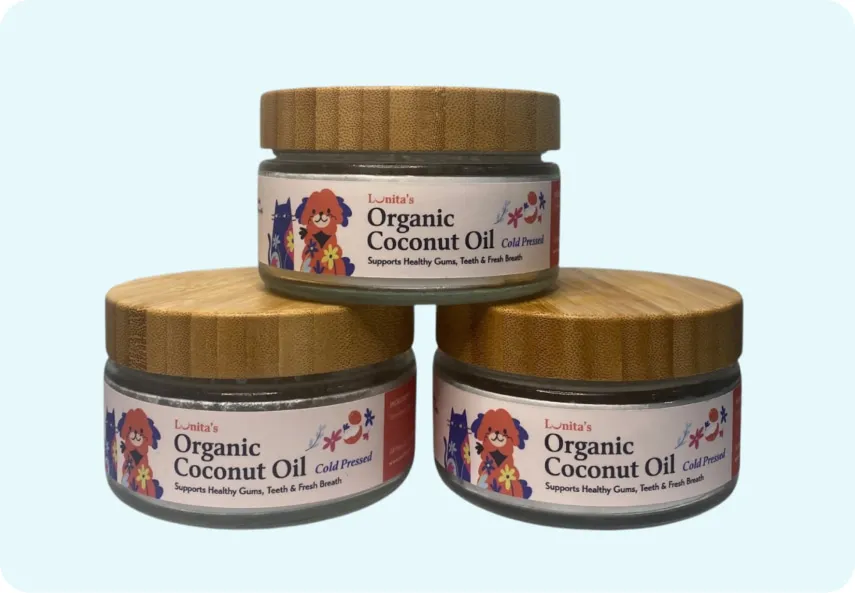Are you tired of your dog’s breath overpowering your cuddle sessions? Bad dog breath, often referred to as halitosis, is a common concern for many pet owners. While it can be an indicator of simple plaque and tartar buildup, it’s crucial to recognize that persistent foul odor can sometimes signal more serious underlying health issues. The good news is that with a combination of diligent home care, effective natural remedies, and regular veterinary dental checkups, you can help your furry companion achieve fresher breath and maintain optimal oral health. This guide will delve into various natural solutions that can help combat stinky dog breath, allowing you to enjoy those close moments with your canine friend without worry.
The key to maintaining a healthy mouth for your dog and preventing bad breath lies in a consistent routine. Brushing your dog’s teeth daily at home, alongside professional dental cleanings by a veterinarian twice a year, is the most effective strategy for preventing the buildup of odor-causing bacteria. However, we understand that not all dogs readily tolerate daily teeth brushing. For those canine companions who are less keen on the traditional brushing method, there are numerous other natural approaches and products that can help keep their breath fresh and their teeth clean between professional treatments. Exploring these options ensures that every dog owner can find a solution that works for their pet’s needs and temperament.
Understanding the Causes of Stinky Dog Breath
Before diving into remedies, it’s essential to understand what might be causing your dog’s less-than-pleasant breath. While often overlooked, a dog’s oral health is a critical component of their overall well-being.
- Dental Disease: This is the most prevalent culprit. As plaque and tartar accumulate on your dog’s teeth, they create a breeding ground for bacteria. These bacteria produce volatile sulfur compounds, which are the primary cause of that distinctive “dog breath” odor. If left unaddressed, this can progress to more severe periodontal disease, impacting not just the mouth but potentially the entire body.
- Underlying Health Conditions: In some cases, bad breath can be a symptom of more serious systemic health problems. Conditions like kidney or liver disease, diabetes, and even certain types of tumors can manifest with specific breath odors. For instance, a fruity or acetone-like smell might indicate diabetes, while an ammonia-like scent could point to kidney issues.
- Foreign Objects in the Mouth: Occasionally, a dog might ingest or get something lodged in its mouth, such as a piece of a stick or bone. These foreign bodies can cause irritation, infection, and lead to a sudden onset of foul odor.
- Dietary Factors: What your dog eats plays a significant role in their breath. Scavenging for discarded food, eating garbage, or consuming certain types of food can contribute to bad breath.
When to Seek Veterinary Care:
It’s crucial to consult your veterinarian if you notice any of the following:
- A breath odor that is unusually strong, sweet (fruity), resembles ammonia, or has a distinctly decaying smell.
- Signs of lethargy, excessive drooling, or unexplained weight loss, which could indicate more severe health problems associated with dental disease or other illnesses.
- Your dog is exhibiting signs of pain or discomfort when eating or when you try to examine their mouth.
Effective Natural Remedies for Bad Dog Breath
Beyond professional dental care and daily brushing, several natural remedies can significantly improve your dog’s breath. These are excellent supplementary strategies to incorporate into your dog’s routine.
 Carrots being offered to a dog
Carrots being offered to a dog
1. Crunchy Veggie Snacks: Carrots and Apple Slices
Sharing healthy, crunchy snacks like carrot sticks and apple slices with your dog can be surprisingly beneficial for their oral hygiene. The abrasive texture of these foods acts as a natural toothbrush, helping to scrape away plaque and tartar buildup from your dog’s teeth and gums as they chew. This physical action is a simple yet effective way to keep their teeth cleaner between brushing sessions. For teething puppies, freezing these treats can provide a soothing relief for sore gums while still offering dental benefits.
2. The Power of Coconut Oil
Coconut oil has gained popularity in pet care for its numerous health benefits, and it’s a fantastic ally in combating bad dog breath. This versatile oil possesses potent antiviral, antifungal, and antibacterial properties, making it a formidable opponent against the odor-causing bacteria in your dog’s mouth. You can incorporate coconut oil into your dog’s diet by adding a small amount to their food, or you can use it directly as a natural toothpaste. Simply apply a small dab to a toothbrush or your finger and gently rub it onto your dog’s teeth and gums. As an added bonus, regular use of coconut oil can contribute to a shinier, healthier coat for your dog.
 A jar of coconut oil next to a dog's chew toy
A jar of coconut oil next to a dog's chew toy
3. Fresh Mint for a Fresher Scent
Adding fresh mint to your dog’s food can provide an instant breath-freshening effect. Mint contains chlorophyll, a natural compound known for its healing properties and ability to combat odors. Furthermore, mint is rich in vitamins A and C, which are essential for maintaining healthy bones, skin, and vision in dogs. Beyond just freshening breath, mint can also aid in promoting healthy digestion. A small sprinkle of chopped fresh mint leaves at each meal can make a noticeable difference.
4. Apple Cider Vinegar in the Water Bowl
Apple cider vinegar (ACV) is a potent natural remedy with properties that can help combat bad breath. Adding up to a teaspoon of ACV to your dog’s water bowl introduces malic and acetic acids, both of which have natural bacteria-killing capabilities. These acids can help neutralize the odor-causing bacteria in your dog’s mouth. Additionally, ACV is a good source of essential minerals like calcium, potassium, and magnesium, which contribute to your dog’s overall health and well-being.
 A dog drinking water from a bowl
A dog drinking water from a bowl
5. Specially Designed Chew Toys and Dental Treats
Many commercially available chew toys and dental treats are specifically formulated to help clean your dog’s teeth and freshen their breath. These products often have textured surfaces designed to massage gums and scrub away plaque. Some may also contain ingredients that help combat odor-causing bacteria or freshen breath naturally. Exploring options like over the counter flea and tick medication for dogs can sometimes include dental health benefits or oral hygiene components, though their primary purpose is pest control. For targeted dental care, look for treats with ingredients known for their oral health benefits. Our blog post on the best dental chews for dogs offers further guidance on selecting appropriate products. Some treats may even incorporate natural deodorizers like lemon to leave your dog’s breath smelling fresh. For effective flea and tick prevention, consider exploring prescription flea treatment for dogs or most effective dog flea and tick treatment.
6. Yogurt and Probiotic Supplements
The beneficial bacteria found in yogurt and probiotic supplements can play a role in improving your dog’s breath. Some research suggests that these “good” bacteria can help by competing with and neutralizing the odor-causing bacteria present in the mouth. This can lead to a reduction in bad breath. Moreover, probiotics are known to support a healthy digestive system, which can indirectly contribute to better overall health and potentially less breath odor stemming from digestive issues. Always opt for plain, unsweetened yogurt and consult your veterinarian before introducing probiotic supplements to your dog’s diet. For comprehensive parasite control, understanding options like flea tick meds for dogs or the best otc flea and tick treatment for dogs is also important.
Establishing a Routine for Long-Term Fresh Breath
While the natural remedies discussed above are effective in managing and reducing stinky dog breath, they are most impactful when integrated into a consistent oral care routine. The cornerstone of preventing bad breath and maintaining your dog’s oral health remains a combination of regular at-home brushing and professional veterinary cleanings. If your dog is hesitant about tooth brushing, don’t get discouraged. Our comprehensive At-Home Brushing Guide is filled with practical tips and techniques designed to make the experience more positive and manageable for both you and your canine companion.
By combining these effective natural remedies with a dedicated routine of regular brushing and professional dental care, you can effectively combat bad dog breath and ensure your beloved pet’s mouth remains healthy, clean, and free from harmful bacteria. You’ll soon be back to enjoying those close, snuggle-filled moments with your furry best friend, confident in their fresh breath.
